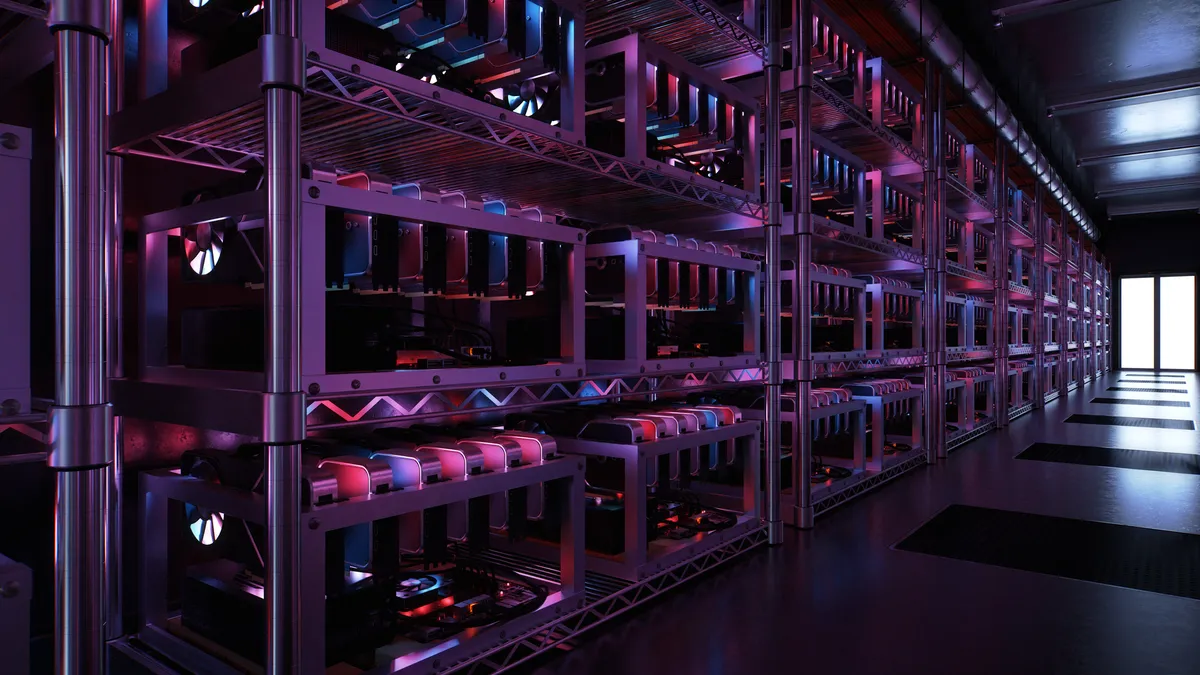Dive Brief:
- Seven lawmakers led by Sen. Elizabeth Warren, D-Mass., have asked the Electric Reliability Council of Texas for data on the energy consumption of Bitcoin miners, including what impact the cryptomining sector may be having on energy costs to local families and businesses.
- In particular, Warren’s Oct. 12 letter seeks information on Bitcoin miners’ participation in ERCOT demand response programs that pay large consumers to reduce energy consumption in times of grid stress. These “subsidies” to miners “feed back into the worsening climate crisis,” according to the lawmakers.
- Texas could host up to 20% of the world’s cryptomining computing power worldwide by the end of next year, by some estimates. Miners say their energy use can help keep the grid reliable because it is a flexible load that acts like a demand side battery.
Dive Insight:
Despite a rapid slide in Bitcoin prices this year, ERCOT officials say interest in connecting to the Texas grid has continued to rise.
As of August there were 33 GW of crypto mining loads wanting to connect to the grid, according to ERCOT. That figure has almost doubled since April, when it was just 17 GW, the grid operator said. Bitcoin finished April trading north of $37,000 and closed out August at around $20,000.
While there are dozens of gigawatts of crypto load interested in connecting to ERCOT, the grid operator noted in an email that currently there are only “an estimated few hundred MW currently operational.”
The figure is growing. “Texas Bitcoin miners are bringing hundreds of direct jobs and thousands of indirect jobs to rural communities across the state as well as paying tens of millions of dollars in state and local taxes,” the Texas Blockchain Council, which advocates for the industry, said in a response to Warren’s letter.
The group said Texas miners curtailed over 50,000 MWh in July, in response to record heat and energy demand on the grid.
Bitcoin mining “soaks up excess power capacity during times of low demand and turns off on hot summer days when Texans use more energy,” Texas Blockchain Council President Lee Bratcher said in a statement.
Providing services back to the electric grid can generate up to 10% of a mine’s revenue. And ERCOT has confirmed the miners “respond during grid events by rapidly reducing their electric use,” including helping to make additional energy available during Winter Storm Uri.
But Warren and the other lawmakers say asking ratepayers to fund demand response payments to crypto miners is unfair, and the incentives to reduce power demand “contribute to a larger issue of having consumers, rather than industries with outsized electricity demand like cryptominers, bear the costs of maintaining the electricity grid.”
Demand response payments could reach $170 million annually in the coming years, according to the letter. “These subsidies to cryptominers also feed back into the worsening climate crisis,” the lawmakers said.
The letter asked ERCOT to provide data on:
- the electricity consumption of the Texas cryptomining industry in 2022, including how many tons of carbon dioxide emissions it produced;
- which cryptomining companies have signed power curtailment agreements with ERCOT;
- how much miners are paid hourly to curtail their energy consumption;
- and the average cost of electricity to consumers during times when crypto miners are being paid to curtail.
“The climate change that cryptomining is contributing to will further exacerbate extreme weather, creating a feedback loop in which energy demand more frequently exceeds supply, causing further strain on electrical grids and potentially resulting in more payouts to those same cryptomining companies,” the lawmakers told ERCOT.
ERCOT officials say they have received Warren’s letter and will have a response in the coming weeks.















